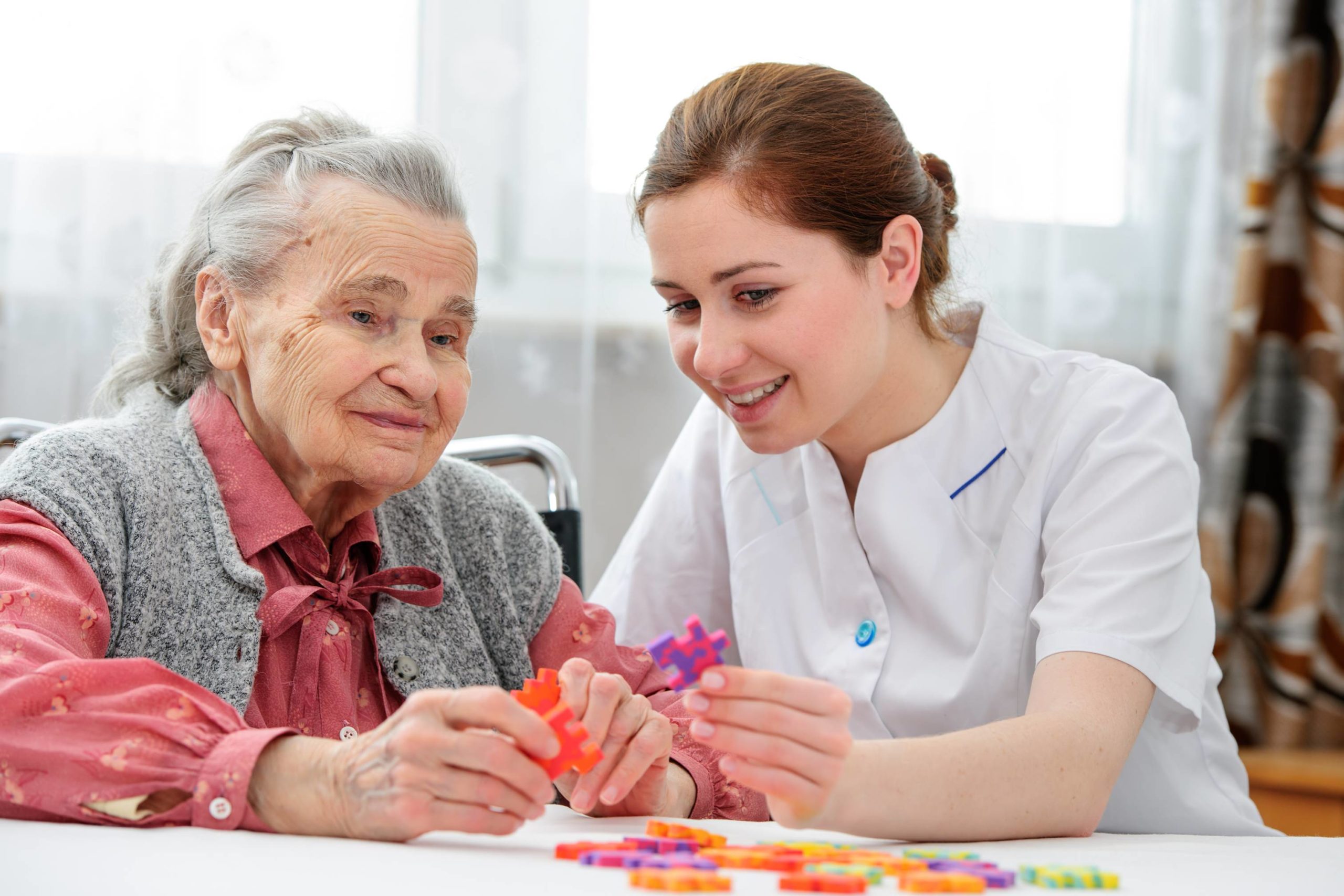Exactly How a Memory Care Facility Charlotte Can Enhance Life for Locals
Exactly How a Memory Care Facility Charlotte Can Enhance Life for Locals
Blog Article
Creating an Encouraging Environment With Professional Dementia Treatment
Producing a supportive setting for individuals with mental deterioration requires a multifaceted method that integrates expert treatment strategies customized to their distinct requirements. The duty of caregivers in this dynamic can not be forgotten, as their well-being is similarly vital to providing caring treatment.
Understanding Dementia Needs
When resolving the complexities of dementia treatment, comprehending the distinct demands of individuals living with this problem is critical - Dementia Care Charlotte. Mental deterioration is a complex cognitive disorder that affects memory, reasoning, and day-to-day functioning. As a result, caretakers and medical care professionals need to recognize that each individual's experience with dementia varies dramatically, affected by factors such as the sort of dementia, phase of the disease, and personal history.
Efficient mental deterioration treatment requires a person-centered approach that respects the individual's regimens, worths, and preferences. This includes promoting open communication, which can help caregivers discern the specific needs and needs of those they sustain. Furthermore, comprehending behavioral modifications, such as agitation or withdrawal, is essential, as these behaviors frequently signify unmet demands or pain.
Furthermore, caregivers should be outfitted with expertise relating to the emotional and emotional facets of mental deterioration. Individuals might experience sensations of confusion, stress, or despair, requiring thoughtful actions that validate their experiences. By growing an atmosphere of empathy and understanding, caretakers can improve the lifestyle for individuals with dementia, ensuring they feel valued and sustained throughout their journey.
Creating Safe Spaces
Creating secure spaces for people with dementia is necessary, as a properly designed environment can substantially boost their complacency and independence. The physical design of a room ought to focus on safety and security while promoting freedom. This consists of reducing barriers, making certain clear pathways, and making use of non-slip floor covering to decrease the danger of falls.
Including familiar and soothing components, such as individual photos and valued personal belongings, can assist relieve stress and anxiety and produce a feeling of belonging. Additionally, using ideal lights is essential; natural light is better, but soft, adjustable illumination can help prevent complication and disorientation throughout various times of day.

Interaction Strategies
Effective communication methods are critical for cultivating meaningful interactions with individuals dealing with mental deterioration. Given the cognitive obstacles linked with this condition, caregivers should utilize strategies that enhance understanding and decrease stress.
This approach helps to develop trust fund and signals that the caretaker is completely engaged. It is likewise useful to ask yes-or-no concerns, as these are simpler for people with dementia to procedure and response.
Non-verbal communication plays a significant duty as well; motions, face expressions, and touch can convey compassion and link. Caregivers must be attuned to the individual's non-verbal signs to assess their mood and readjust their method accordingly.
Furthermore, allowing adequate time for reactions is critical. Individuals with mental deterioration may need extra time to procedure information and create their ideas. Last but not least, validating their sensations and experiences, no matter how fragmented they may appear, fosters a feeling of dignity and regard. By executing these interaction strategies, caregivers can produce a supportive environment that boosts the health of individuals coping with dementia.
Engaging Tasks
Involving activities play an important duty in enhancing the lifestyle for individuals dealing with mental deterioration, enhancing the interaction methods formerly discussed. These activities not only offer cognitive stimulation yet also promote a feeling of function and belonging. Customizing activities to line up with the person's choices, capacities, and passions is vital for maximizing engagement.
Creative pursuits, such as art and music therapy, can evoke emotions and memories, assisting in connections with caregivers and peers. Easy jobs like gardening or cooking permit for purposeful engagement, urging self-reliance and self-confidence. Additionally, physical activities, consisting of walking or mild workouts, promote overall well-being and can minimize anxiousness and frustration.

Support Resources for Caregivers
Caring for a specific with mental deterioration can be an overwhelming experience, making access to sustain resources important for caretakers' health. Different resources are readily available to help caretakers in taking care of the emotional and practical obstacles linked with mental deterioration care.
Local assistance groups supply a vital platform for caretakers to share experiences, get encouragement, and gain insights from others encountering similar difficulties. Lots of organizations, such as the Alzheimer's Association, supply educational programs and workshops that improve caretakers' skills and expertise about dementia.
Furthermore, reprieve care services can be very useful, allowing caregivers to take needed breaks without endangering the treatment offered to their liked ones. This kind of assistance can prevent caregiver fatigue, promoting overall mental and physical health and wellness.
On the internet resources, consisting of online forums and websites devoted to mental deterioration treatment, offer caregivers the flexibility of accessing information and community support at their benefit. Mental health and wellness experts specializing in caregiver assistance can offer tailored counseling and coping strategies.
Including these assistance sources right into day-to-day regimens guarantees that caregivers not only satisfy their obligations efficiently but additionally prioritize their very own health, fostering a much healthier caregiving atmosphere.
Final Thought
In conclusion, developing a supportive environment for people with mental deterioration requires a multifaceted strategy that addresses their special requirements. Emphasizing secure, acquainted spaces, reliable communication techniques, and meaningful engagement boosts the high quality of care given. Moreover, gearing up caregivers with crucial resources and assistance is vital for fostering their well-being and allowing them to deliver check here thoughtful care. Together, these components contribute to a holistic structure that advertises safety and security, comfort, and psychological health for both individuals with dementia and their caretakers.
Producing an encouraging atmosphere for people with dementia necessitates a multifaceted strategy that integrates skilled care methods customized to their one-of-a-kind needs. Memory Care Charlotte. Caretakers and healthcare professionals should identify that each person's experience with dementia varies considerably, influenced by elements such as the kind of mental deterioration, phase of the condition, and individual background
By growing an environment of empathy and understanding, caregivers can improve the quality of life for individuals with dementia, guaranteeing they really feel valued and sustained throughout their trip.
By applying these interaction strategies, caregivers can create a supportive atmosphere that boosts the health of people living with dementia.
Together, these elements add to an alternative framework that promotes safety, comfort, and psychological wellness for both people with dementia and find out here now their caretakers.
Report this page